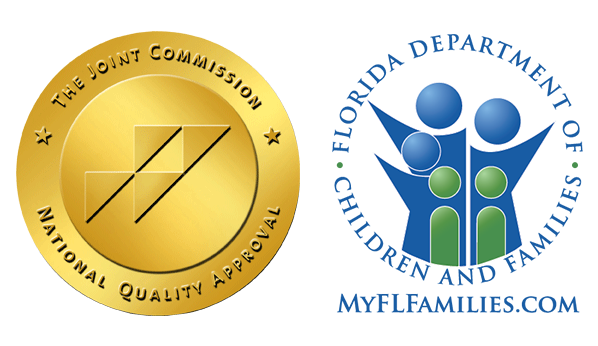Programs for the therapy of substance use disorders typically fall into one of two categories: inpatient or outpatient. Both types are equally concerned with rehabilitation, but each has particular qualities and advantages to give. Inpatient treatment programs also referred to as residential treatment programs, are thorough and made to handle severe addictions and drug use disorders. On the other hand, part-time programs for Intensive outpatient treatment offer some flexibility so that a patient can attend treatment without neglecting job or academic obligations. Before selecting one of these two therapy options, it’s critical that the person who has a substance use disorder (SUD) and their loved ones are aware of the differences between them. Before making a choice, consider all your choices. This will help you or a loved one start down the path to long-term sobriety.
Outpatient Programs in Ft. Lauderdale and Boynton Beach, FL
An outpatient rehab program provides support groups and drug and alcohol treatment sessions that can be taken at different times throughout the week. With this plan, patients can carry on with their daily tasks and remain in their homes, but they must check into treatment at the designated times for counseling and medication. The general focus of outpatient programs is on counseling, education, and providing a network of support. They come in a variety of forms, with varying degrees of intensity, and with a range of services.
What Kind of Treatment is Offered at Outpatient Programs in South Florida?
Depending on the substance used, the extent of the addiction, and the stage of recovery, there are various kinds of outpatient rehab. The following three groups best describe the common forms of outpatient rehab: Daytime Programs The highest degree of structure and care are offered in outpatient settings through outpatient day programs. Clients who enroll in a day program agree to attend meetings for several hours each day, five to seven days a week, at an outpatient center. Patients will engage in ongoing treatment, group counseling, biofeedback, and other supplemental therapies during this time. After each lesson, patients may go back home, either to their families or a sober living facility. Day programs call for a significant time commitment, which may restrict a person’s ability to work or attend education until the program is over. Programs for Intense Outpatient Care (IOP) In order to track progress, intensive outpatient programs create a treatment plan with specific, quantifiable benchmarks. The weekly time commitment needed decreases as these milestones are reached. For those serious about quitting drugs and alcohol but still need to be able to work and handle daily responsibilities, the IOP is a viable option. To perform counseling sessions, group therapy, relapse prevention education, and attendance in a 12-step or comparable recovery support group, an IOP may need numerous sessions for a few hours each week. Continuing Care Brings Longterm Success A person can get ongoing assistance from continuing care organizations like Alcoholics Anonymous or Narcotics Anonymous to strengthen their commitment to sobriety. The groups usually meet once a week and are led by a licensed therapist. Some continuing care groups might be age- or gender-specific, while others might concentrate on a specific element of recovery.
Why Choose IOP Ft. Lauderdale or IOP Boynton Beach?
Client and Facility Flexibility The fact that IOPs give both clients and the treatment facility more flexibility is one of their most important advantages. Plans are made especially for each client so the staff at the treatment center is better able to address their individual needs and treatment objectives. Similar to IOPs, clients have more freedom to continue receiving treatment as they go about their daily activities. IOPs allow for greater scheduling flexibility and accommodate a client’s timetable. Greater Client Personal Responsibility IOPs also give clients the opportunity to take on more responsibility in their daily lives. IOPs offer a better balance between the two than residential treatment programs, which require patients to put their personal duties on hold, and inpatient programs, which might not provide the level of care required to maintain recovery. IOPs urge clients to work with mental health professionals to develop effective personal responsibility management skills. IOPs are a great way for clients to find the right balance between prioritizing their recovery and their outside obligations, especially for those who are leaving rehab. Greater Chance to Apply Treatment-Related Skills IOPs enable patients to actively put what they learn in therapy into practice in their everyday lives, in contrast to residential treatment programs. When clients learn new coping mechanisms like mindfulness or meditation, they have the opportunity to apply those techniques in their daily lives at home. IOP programs are crucial because they give clients the chance to learn new coping mechanisms for dealing with their current anguish. IOPs Offer Greater Privacy IOPs also have the advantage of being more private than residential institutions. When you stay at a residential treatment facility, everyone is involved in your business. Since everyone in treatment is probably going through a lot of the same difficulties, you end up becoming extremely close to the other patients. Your recovery becomes a little bit more private in an IOP, and you have more control over what you choose to keep to yourself and what you choose to share with your peers. IOPs also enable patients to participate in treatment without having to provide a justification for a protracted absence, such as to a job, as they would in a residential treatment program. Clients may feel less exposed to their issues when undergoing an IOP, mainly due to the improved scheduling flexibility. Support Systems IOPs provide their customers with a variety of support systems to aid in their recovery. Clients in outpatient therapy will have access to one-on-one counseling meetings, group therapy sessions, support groups, and mentors to encourage and empower their recovery journeys. Clients have better access to support networks outside of treatment, such as family and friends, in addition to therapists, counselors, and other mental health staff. IOPs enable clients to live at home, so people are urged to invest more time in their healthy friendships and family ties outside of therapy. They are urged to work on strengthening their support networks so that, once IOP is complete, they will feel more assured in their connections and their capacity to maintain long-term rehabilitation. Conclusion Whether choosing a Residential Program or an Intensive Outpatient Program, Beachcomber has you covered. Our Residential Program in Delray Beach will meet even the greatest need in rehabilitation, while our Intensive Outpatient Programs in Ft. Lauderdale and Boynton Beach will provide the flexibility and benefits mentioned above.












